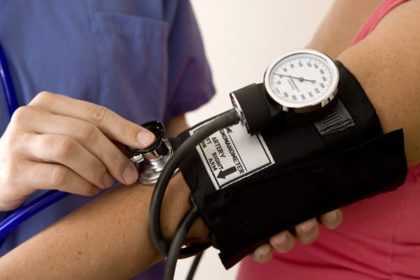Do you get short of breath when you bend forward, such as to tie your shoelaces or put your socks?
If so, this is a symptom recently coined as “bendopnea” (pronounced bend-OP-nee-ah).
A study of 102 heart failure patients showed bendopnea was present in 29 out of 102 subjects (28%). The average time it took for these symptoms to appear was eight seconds.
Some patients thought their bendopnea was due to being out of shape or overweight, but were more likely to have other symptoms of advanced heart disease.
Heart Failure Does Not Mean the Heart Stops Beating
Heart failure, often referred to as congestive heart failure or (CHF), is a serious condition, but people often mistakenly think that it means that the heart has stopped beating.
Heart failure occurs when your heart cannot pump enough blood and oxygen to maintain blood flow to other organs in your body.
The reoxygenated blood from your lungs starts building up inside your lungs when your heart can’t keep up with ejecting it to other organs in need.
The first signs and symptoms of heart failure include:
- Shortness of breath (worse with exertion and/or while lying down)
- Excessive fatigue
- Swelling in the lower extremities (legs, ankles, feet)
Chest pain, including angina, is not typically a complaint with heart failure.
According to the Centers for Disease Control and Prevention, about 6.2 million adults in the United States have heart failure. CDC Heart Failure Fact Sheet
Try This Test for Bendopnea
Sit down, and bend forward at the waist. You have bendopnea is you are short of breath within 30 seconds. This means you could have:
- Too much fluid in your body
- Elevated pressure in your heart and your pulmonary veins and capillaries
- Increased pressure when leaning forward (bending)
Risk Factors for Heart Failure
- Coronary artery disease (the most common type of heart disease)
- History of a heart attack
- High blood pressure
- Atrial fibrillation
- Diabetes
- Smoking
- Not enough physical activity
- Overweight/obesity
- Valvular heart disease
- Excess alcohol intake
![]() Karen’s Fit Tip: If you have bendopnea, be sure to tell your physician. It can be difficult to assess when you are retaining fluid.
Karen’s Fit Tip: If you have bendopnea, be sure to tell your physician. It can be difficult to assess when you are retaining fluid.
This assessment is a simple and noninvasive tool to diagnose excessive fluid retention and compromised blood flow.
Source:
Study by the Division of Cardiology, Department of Internal Medicine, University of Texas Southwestern Medical Center, Dallas, Texas. Characterization of a novel symptom of advanced heart failure: bendopnea. Journal of the American College of Cardiology. 2014.





